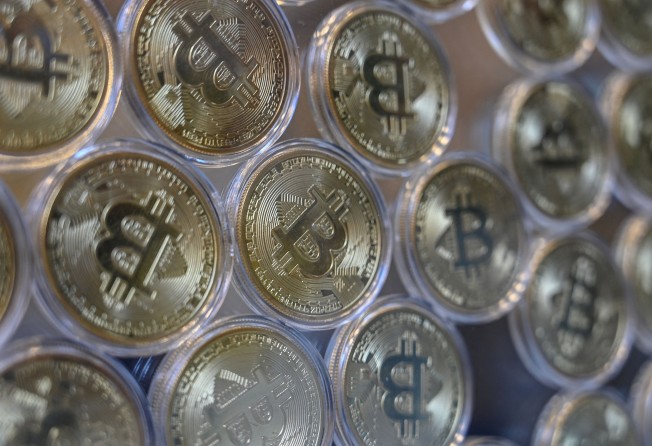Chinese cryptocurrency media outlets suspend websites as Beijing shows zero tolerance on virtual assets
- ChainNews tweeted Monday that its website would suspend service for up to 10 hours for ‘upgrade maintenance’, but the site remained down on Wednesday
- The Twitter accounts of ChainNews and Odaily provided links to their Telegram channels, where they continue posting news and interacting with readers

Popular Chinese cryptocurrency news outlets ChainNews and Odaily have become inaccessible, as Beijing continues its crackdown on the trading and mining of virtual assets.
ChainNews tweeted on Monday that its website would suspend service for eight to 10 hours “due to upgrade maintenance”, but the site remained down on Wednesday both inside and outside China.
Odaily, an online site covering cryptocurrency and non-fungible tokens, has also gone offline in recent days.
Neither company immediately responded to a request for comment on Wednesday.
It is unknown whether the two sites plan to switch to using overseas servers to avoid Beijing’s regulatory wrath, as many Chinese cryptocurrency trading, mining and information services have already done.
The Twitter accounts of both news outlets provided links to their channels on the messaging app Telegram, where they continue posting news and interacting with readers. Both Twitter and Telegram are banned in China.
This is not the first time China-based cryptocurrency information providers have been affected by regulatory crackdowns. In July, online cryptocurrency community Bishijie, or Coin World in English, terminated operations of its website and app in mainland China.
The latest move is part of China’s ongoing crackdown on the once-booming cryptocurrency community.
Chinese authorities see cryptocurrencies such as bitcoin as a threat to China’s financial stability and capital account controls.
In May, three Chinese state-backed financial associations jointly issued a warning about the risks stemming from volatile cryptocurrencies. China’s State Council Financial Stability and Development Committee, chaired by Vice-Premier Liu He, then escalated the warning into a nationwide crackdown on bitcoin mining and trading.
In late September, the central bank intensified the purge, warning that anyone inside China involved in providing support to an offshore cryptocurrency exchange could come under investigation.
The National Development and Reform Commission (NDRC), the country’s top economic planner, last month added mining of bitcoin and other digital tokens to a blacklist of industrial activities that must be abandoned.
NDRC said this week it would implement further measures to eliminate cryptocurrency mining.
To deliver Beijing’s zero tolerance message on cryptocurrency, the NDRC, in a very rare case, confirmed last week that a senior official in Jiangxi was probed for tolerating mining operations under his watch, which equated to his support of mining and being disloyal to Beijing.
The harsh crackdowns have triggered a series of compliance moves by cryptocurrency firms.
In June, the operators of cryptocurrency exchanges Huobi and OKCoin cancelled their Beijing subsidiaries’ company registrations. Huobi also introduced a 24-hour withdrawal delay and halted derivatives trading in China.
BTC China, which once ran the country’s largest cryptocurrency exchange, said in June that it had “completely exited from bitcoin-related businesses”.